Today Francis inaugurated a bronze bust in honour of his predecessor, describing Benedict XVI as “a great Pope”. “Evolution in nature is not inconsistent with the notion of creation,” he told members of the Pontifical Academy of Sciences.
On monday Francis inaugurated a bronze bust in honour of his predecessor, describing Benedict XVI as “a great Pope”. “Evolution in nature is not inconsistent with the notion of creation,” he told members of the Pontifical Academy of Sciences.
Today Francis presented neck-chains to new members of the Pontifical Academy of Sciences and inaugurated a bronze bust in honour of Joseph Ratzinger, praising him as an example of dialogue between faith and science.
“The Big Bang, which is today’s most popular theory about the origin of the universe, does not contradict divine creation, it requires it. Evolution in natureis not inconsistent with the notion of creation because evolution presupposes the creation of beings that evolve,” Francis warned. Scientific progress goes hand in hand human progress: “We need to build a human world for all human beings and not for a group or a class of privileged individuals.”
Francis inaugurated the statue at the Casina Pio IV villa, the headquarters of the Pontifical Academy of Sciencesin the Vatican Gardens. “This bust brings to life the figure and face of dear Pope Ratzinger in the eyes of everyone,” Francis said in the speech he gave at the inauguration ceremony. It also communicates his spirit: the spirit of his teaching, his examples, his works, his devotion to the Church and his current “monastic” life. Far from fading away with time, this spirit will appear greater and stronger from generation to generation. Benedict XVI: a great Pope. Great because of his powerful and penetrating intelligence, great because of his contribution to theology, great because of his love for the Church and human beings, great because of his virtue and his religiosity. As you know, his love for the truth is not limited to theology and philosophy but encompasses the sciences too. Francis presented the Pope Emeritus as a model for dialogue between faith and religion. “His love for science becomes concern for scientists, without distinctions based on race, nationality, civilization or religion. He has shown concern for the Academy ever since John Paul II nominated him a member. He honoured the Academy with his presence and his word and nominated many of its members, including the current president, Werner Arber,” Francis emphasised. Aware of the importance of science in modern culture, Benedict XVI invited a President of this Academy to participate in the Synod on the new evangelisation for the first time ever. Study and science certainly never made him lose his love for God and his neighbour. On the contrary: science, wisdom and prayer made his heart and his spirit bigger.”
So “we thank the Lord for the gift he gave to the Church and the world in the form of Benedict XVI himself and his pontificate. I thank all those who showed generosity in creating this bust and this gesture. I especially want to thank the creator of bust, the sculptor Fernando Delia, the Tua family and all members of the Academy. I wish to thank all of you who are present here today to honour this great Pope.”
At the end of the plenary session, Francis expressed his deep esteem and warm encouragement to Vatican academics, inciting them to continue scientific progress and working towards improving people’s life conditions, particularly those of the poor.” He also gave the coordinates for communication between science and religion. “You are dealing with the highly complex subject of nature as an evolving concept,” Francis said. “I will not go into the scientific complexity of this important and decisive question. I just want to underline that God and Christ walk among us and are present also in nature, as the Apostle Paul said in his Areopagus sermon: “In God we live and move and have our being.” When we read about the story of Creation in the Genesis we risk thinking of that God as a magician with a magic wand who can make anything happen. But this is not the case. He created living beings and let them develop according to the internal laws he gave each one of them, so that they could develop, reaching full maturity.” God, Francis stressed, “gave these creations independence whilst at the same time assuring his continuous presence, giving a sense of being to every existing thing.”
“And so creation evolved through the centuries and millennia, until it became what it is today, not because God is a demiurge or a magician but the Creator who gives life to all beings.” Thus, the world did not come into being out of chaos, as this is the fruit of another creator. Rather, it derives directly from a supreme Principle that creates out of love.” But when it comes to humans, there is change. When humans were created on the sixth day of the Genesis story, God gives human beings another kind of independence “an independence that is different from that which was given to nature; he gave them freedom.” He told humans to give a name to all things and to go on through history. He makes humans responsible for creation “also so that they may dominate Creation and develop it till the end of time.”
Scientists and especially Christian scientists should reflect on the future of humanity and the Earth and as free and responsible beings they should contribute to preparing it, preserving it and eliminating risks to the both the natural and human environment.” At the same time, “scientists must be inspired by the trust that is hidden within nature, in its evolutionary mechanism, the potential which intelligence and freedom must discover and act upon in order to achieve the development which is part of the Creator’s plan.” However limited it may be, “human action together with God’s power is able to build a world that is suitable for its dual – physical and spiritual – life. This hope and trust in God who is nature’s Creator and in the ability of the human spirit, are able to give the researcher a renewed energy and a deep sense of calm.” But it is also true that when the freedom of human action turns into independence which is not freedom but independence, it destroys creation and mankind takes the place of the Creator. And this is the serious sin that is committed against God the Creator.


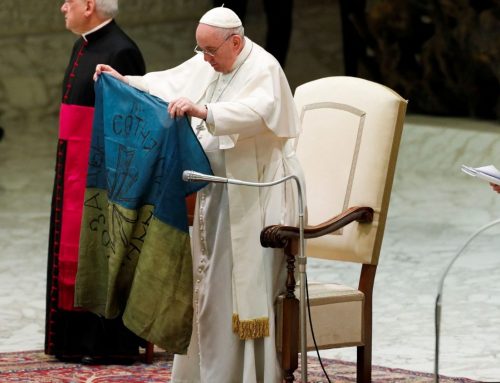
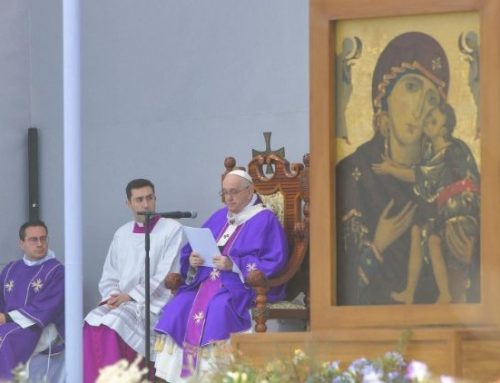
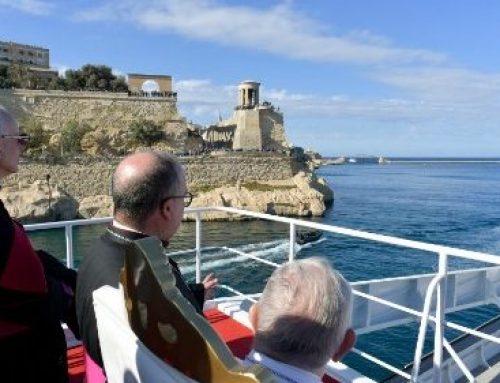
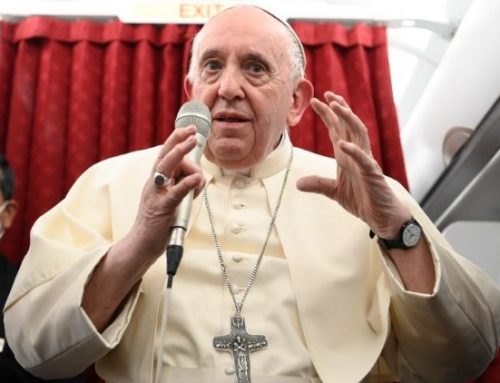
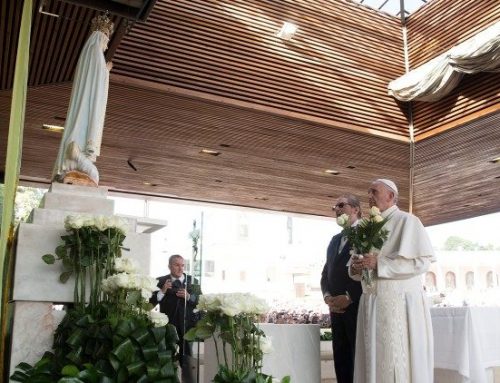
Leave A Comment
You must be logged in to post a comment.